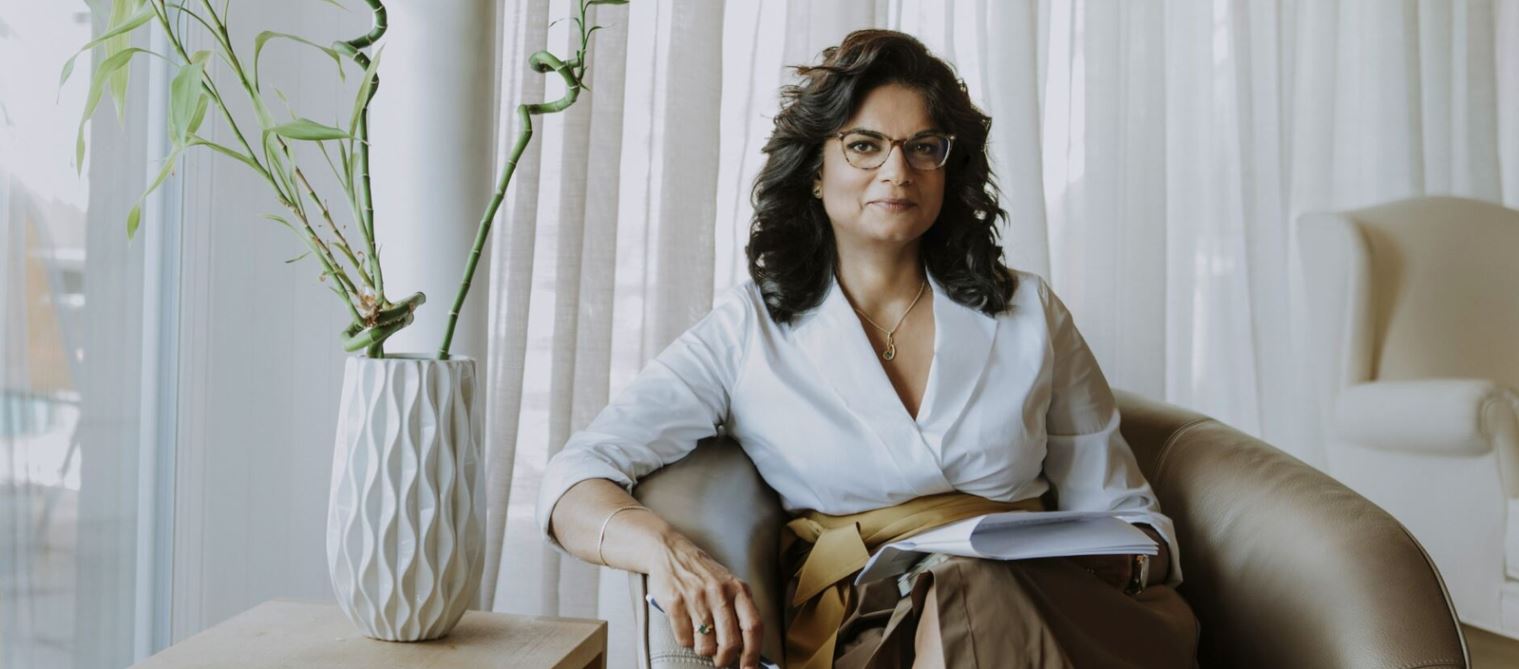
Vindou Duc believes that to embrace coachability – a readiness to be coached – is to embrace “the boundless possibilities of our own evolution”.
A human resources professional for more than two decades, Duc has held leadership roles at numerous organizations, including General Mills International, PwC, and Novartis. She experienced being a coachee for the first time on IMD’s Strategies for Leadership (SL) in 2015, after a friend recommended the program.
As an HR director, coaching and mentoring employees was part of her work, she had taken several online courses to develop her skills. She had also coached clients through The Nextep, the business transformation consultancy she founded in 2008. But the coaching she received on Strategies for Leadership was an eye-opener.
“We had a lot of group coaching over the four days, so we got to know each other very well and opened up to each other, sharing our vulnerabilities and weaknesses,” said Duc. “For me, it was something new. It was a very powerful experience to allow myself to show my vulnerability and feel safe.” She realized that by showing her vulnerability, she made other people feel comfortable to reach out to her. “The image of myself that I was projecting changed,” she said. “I was warmer, more open.”
The program gave Duc the confidence to be herself. Looking back, she says she was “blessed” to have had Susan Goldsworthy, Affiliate Professor of Leadership, Communications, and Organizational Change at IMD, as her coach.
“A good coach is someone who can really take you to the next level, and Susan did that very successfully,” she said. “The person I am on the journey of becoming is in great part thanks to her.”
A catalyst for change
Six years – and many executive coaching clients – later she received an email from IMD announcing a new program, the IMD Executive Coaching Certificate (IECC). The same friend who had recommended SL eventually persuaded her to join the program to consolidate her coaching experience. But Duc was hesitant at first.
“Everyone has a protective shield, and when you’re coached you accept that the shield will be broken. If not, the coaching will have a superficial effect that won’t be sustainable,” she explained. “To become a good coach, you have to go through the whole experience, which means going into uncharted territories.”
IECC involved nearly four weeks of coaching, spread over nine months, with virtual coaching between sessions.
“The face-to-face sessions were the most powerful because there was a lot of reflection, a lot of questioning, and exercises throughout,” said Duc. “Coaching is an opportunity to grow. You gain self-awareness and have to ask yourself how you will act on it.”
Duc learned a lot on the program. “I discovered a whole new part of myself that I had no clue about, and I’m still learning about it,” she said. From a professional perspective, her biggest learning came from watching the program directors coaching other participants and being able to observe changes in them over time.
“I learned a lot of tools and different ways of looking at a problem and questioning it. I use the tools and techniques every day in my coaching and HR work,” she said, adding that being an IMD-certified executive coach has increased her credibility and legitimacy.
Witnessing significant changes in her long-term coachees and being told that she has changed their lives is very rewarding.
“But just one session can have an impact on someone and help them to grow,” she said, citing the example of a senior leader she coached over breakfast on the day of an important meeting. Her coachee wrote to her later in the day to tell her that, following their session together, the way she approached the meeting changed the whole dynamic and she left it feeling “totally energized”.
Leaders as coaches
Duc is convinced of the value of leaders learning to coach.
“A leader with coaching experience will say to their team: ‘This is the vision. I don’t know how you’re going to do this, but I trust you,’” she explained. “Coaching is about creating psychological safety. There is trust. And that trust makes people think ‘I know I can go there, there is no risk, failure will be accepted, it will be an experiment and I’m going to learn.’”
For Duc, the positive impact on the team has a ripple effect within the organization because the team members replicate this leadership approach with their own teams.
Leadership will continue to be at the center of Duc’s activities in 2024. She is working on a project with another IECC alumnus to create a non-profit association and build a community of leaders and experts around the concept “Lead for good”. It involves a holistic approach to leadership, combining elements such as ethics, responsibility, sustainability, and well-being.
Recently installed in a new home, she will also be changing jobs, and reinforcing the focus of her company The Nextep on individual coaching, team coaching, and strategy.
Reflecting on the changes in her life and the evolution of her business over time, she said with a laugh: “The Nextep is like its owner; it’s on a journey.”


